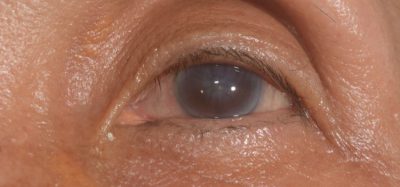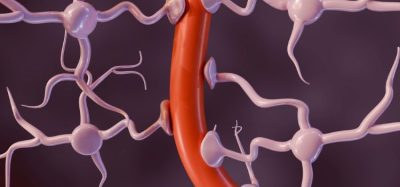Sanofi and Regeneron announce positive results from Phase 2b study of Dupilumab in patients with moderate-to-severe atopic dermatitis
Posted: 10 July 2014 | | No comments yet
Sanofi (EURONEXT : SAN and NYSE : SNY) and Regeneron Pharmaceuticals, Inc. (NASDAQ: REGN) today announced positive results from a Phase 2b dose-ranging study of dupilumab, an investigational therapy, in adult patients with moderate-to-severe atopic dermatitis (AD), a serious, chronic form of eczema.
All doses of dupilumab met the primary endpoint of a greater improvement in Eczema Area and Severity Index (EASI) scores from baseline compared to placebo. In addition, the companies also announced that four earlier clinical studies of dupilumab in moderate-to-severe atopic dermatitis were published today in the New England Journal of Medicine (NEJM). Dupilumab is an investigational monoclonal antibody that blocks signaling of IL-4 and IL-13, two cytokines that play a key role in the pathogenesis of moderate-to-severe atopic dermatitis.
“These clinical data, coupled with our mid-stage phase 2a results in asthma last year, support the growing scientific evidence that the IL4/IL-13 pathway may be a fundamental driver in allergic diseases,” said George D. Yancopoulos, M.D., Ph. D., Chief Scientific Officer of Regeneron and President of Regeneron Laboratories. “Blocking IL-4/IL-13 signaling may provide an important new approach to atopic conditions, including asthma, atopic dermatitis and nasal polyposis, where we have ongoing clinical programs.”
In the Phase 2b trial, all five subcutaneous doses of dupilumab showed a dose-dependent improvement in the primary endpoint, the mean percent change in EASI score from baseline to week 16. The improvements in EASI score ranged from a high of 74 percent for patients in the highest dose group, who received 300 milligrams (mg) weekly, to a low of 45 percent in patients who received the lowest dose of 100 mg monthly, compared to 18 percent for patients in the placebo group (p<0.0001 for all doses).
The most common adverse event in the Phase 2b study was nasopharyngitis, which was balanced across dupilumab treatment groups (18.5 to 23 percent) compared to placebo (21 percent). Injection site reactions were more frequent in the dupilumab group (5 to 9.5 percent) compared to placebo (3 percent), as was headache (12 to 15 percent) compared to placebo (8 percent).
Dupilumab-treated patients showed highly statistically significant and dose-dependent improvements in additional key efficacy measures compared to placebo after 16 weeks of treatment:
- 12 percent to 33 percent of dupilumab-treated patients achieved clearing or near-clearing of skin lesions, as measured by an investigator’s global assessment (IGA) score of 0 or 1, compared to 2 percent with placebo. (p=0.02 to p<0.0001)
- Dupilumab-treated patients experienced a 16.5 percent to 47 percent mean reduction in itching, as measured by the pruritus numerical-rating scale (NRS) score, compared to an increase of 5 percent in the placebo group. (p=0.0005 to p<0.0001)
“Atopic dermatitis is known to have a profoundly negative effect on quality of life and people with more severe forms of this disease have limited therapeutic choices,” said Elias Zerhouni, MD, President, Global R&D, Sanofi. “These latest results are consistent with what was observed in the earlier clinical studies and add to the body of evidence that investigational dupilumab may have a role to play for patients with moderate-to-severe atopic dermatitis. We are now able to select the optimal doses for the phase 3 studies, which we anticipate to begin later this year.”
This Phase 2b double-blind, placebo-controlled, 16-week, dose-ranging study randomized 380 patients with moderate-to-severe atopic dermatitis, who could not be adequately controlled with topical medication or for whom topical treatment was not advisable. Patients were randomized to receive one of five doses of dupilumab (300 mg weekly, 300 mg every other week, 300 mg monthly, 200 mg every other week, 100 mg monthly) or placebo. Patients in the study had approximately 50 percent of their skin affected by atopic dermatitis at baseline. Within the past year, approximately 35 percent of patients received an oral corticosteroid and approximately 20 percent received a systemic immunosuppressant for AD. Approximately 60 percent of patients had another allergic condition, including approximately 40 percent of patients who had a history of asthma. The follow-up period of the study is ongoing and patients will be followed for 16 weeks after treatment.
The NEJM Dupilumab Moderate-to-Severe Atopic Dermatitis Publication
The New England Journal of Medicine publication includes data from four placebo-controlled studies, which all evaluated weekly subcutaneous doses of dupilumab. This included a Phase 2a 12-week monotherapy study, a Phase 2a, four-week study of dupilumab in combination with topical glucocorticoids and two Phase 1 four-week monotherapy studies. In these studies, the most common AEs were nasopharyngitis and headache, which occurred with a higher frequency in the dupilumab group. Treatment with dupilumab, either as a monotherapy or in combination, was associated with improvement in skin lesions and substantial improvements in pruritus (itching). The full publication is available at www.nejm.org.
“The New England Journal of Medicine publication brings important attention to moderate-to-severe atopic dermatitis, a common, chronic skin condition characterized by severe itching that can have a significant negative impact on a patient’s ability to lead a full and active life,” said Lisa Beck, M.D., Department of Dermatology, University of Rochester Medical Center and lead author of the NEJM paper. “We are encouraged by the consistent findings across these earlier studies and look forward to further clinical investigation with dupilumab.”









